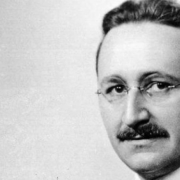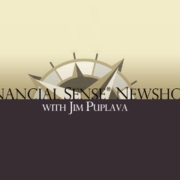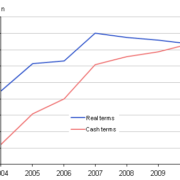Those Dishonest Goldsmiths
My second beach reading has been the above named article. Like the last one I reviewed, this is written by one of the giants of the Austrian School, Prof George Selgin. You can download this paper in draft here. For anyone interested in the origins of modern banking, this paper should definitely be consulted. Prof Selgin challenges the conventional wisdom that the acts of some goldsmiths as they took in gold for safe keeping and issued out more claims, or promises, to redeem gold than there was gold in their vaults, was fraudulent. In a good bit of historical detective work, the Professor has dug up new references that would seem to show some of the following points, which may surprise some readers:
- Goldsmiths paid interest, so this implied that people knew that they were not engaging in an act of safekeeping, but were indeed entering into lending (client / depositor) and borrowing (the goldsmith / banker).
- The use of the word deposit was used to describe a deposit for safekeeping and a deposit for lending.
- There was case law well before Carr v Carr in 1811 that clearly established that if you deposited in a sealed bag, your money would be yours and stored for safekeeping only. If it was deposited loose, it would indeed be a act of lending, by the depositor, to the goldsmith.
- When I last read the case notes of Carr v Carr I do seem to remember that the bag was indeed sealed and earmarked, but the judge found that it was still a bank debt obligation as opposed to a safekeeping arrangement. Not being able to check sources from the beach, I would not say for certain that his was the case, however, I believe it was contra Selgin.
- The goldsmiths rejected the establishment of a state sponsored Bank of England. There was a smear campaign against goldsmiths to discredit them.
- The real angst against the Goldsmiths was that (i) they exported heavier and finer coin for export where it would fetch a better price and leaving the less valuable coin for the local population and (ii) they were usurious in the way they charged interest.
- After King Charles I’s theft of money deposited form safe keeping in the Mint, merchants placed money in the hands of corrupt servants who them embezzled funds with the knowing and or unknowing collaboration of some goldsmiths.
Other economists such as Jesus Heurta De Soto in his book, Money, Bank Credit and Economic Cycles, may well dispute this history as he has documented many counterexamples to support the usual notion that goldsmiths over-issued promissory notes to specie deposited. Anyway, does it matter to us today what happened in our history concerning this disputed issue? I say yes it does. Selgin’s work clearly shows us that there was confusion between the use of the term deposit. Some used it clearly to mean safekeeping and some lending. To me this begs the question, should banking be about a fiduciary arrangement of trust between parties, an enduring obligation of safekeeping and careful investment, or should it be about a straight forward commercial investment with risk to get reward? This today is still not clear for most depositors. Take the example of the Cobden Centre’s commission of a survey of 2,000 people. Here the majority think they own the money deposited and want to have safe and easy access. Most are confused that to have interest this means they have to lend it to bankers to invest, implying risk and reward. Confusion still reigns supreme in matters of banking. For my part, as Carswell and Baker have said in Parliament, we can help clear up this multi century confusion by defining a deposit for custody and deposit for lending. One is a enduring relationship of trust, the other a commercial relationship of profit and loss. I hold also, that with regards to bankers offering fractional reserve accounts, this is possible if the following is adhered to:
- Both parties know this is happening (i.e. the contract explicitly explains this),
- The bank receives the deposited money and makes you a timed depositor from an accounting perspective, for an agreed time period, thus making sure there is no maturity mismatch and no grant of legal privilege required to keep the bank solvent (i.e. it is forced to account like any other commercial entity).
- The depositor is offered “instant access” by exception only via the bank making available for redemption only the cash it has on hand and in its own equity funds. If a panic / run occurs, it can enforce a no redemption policy until the time deposit expires.
This way, you can begin to see a way of squaring the circle: having banks with full reserves, that a run could not be made against, that could not over issue bank credit, but only lend real timed savings, but would also allow a solvent “fractional reserve” type of account. Fiduciary and trust would be the bywords for the safekeeping and investment for the lending and paying of interest. Selgin’s work is a very interesting revisionist historical account of the foundation of modern banking and should be read by all interested in the subject area. The questions that arise from it are touched upon here by me. I urge you all to read if you have time as it may stimulate more and other thought processes.



![spirit-level-why-greater-equality-makes-societies-stronger[1]](https://tobybaxendale.com/wp-content/uploads/2013/07/spirit-level-why-greater-equality-makes-societies-stronger1-180x180.jpg)



![banksign[1]](https://tobybaxendale.com/wp-content/uploads/2013/07/banksign1-180x180.jpg)

![money-770×426[1]](https://tobybaxendale.com/wp-content/uploads/2013/07/money-770x4261-1-180x180.jpg)


